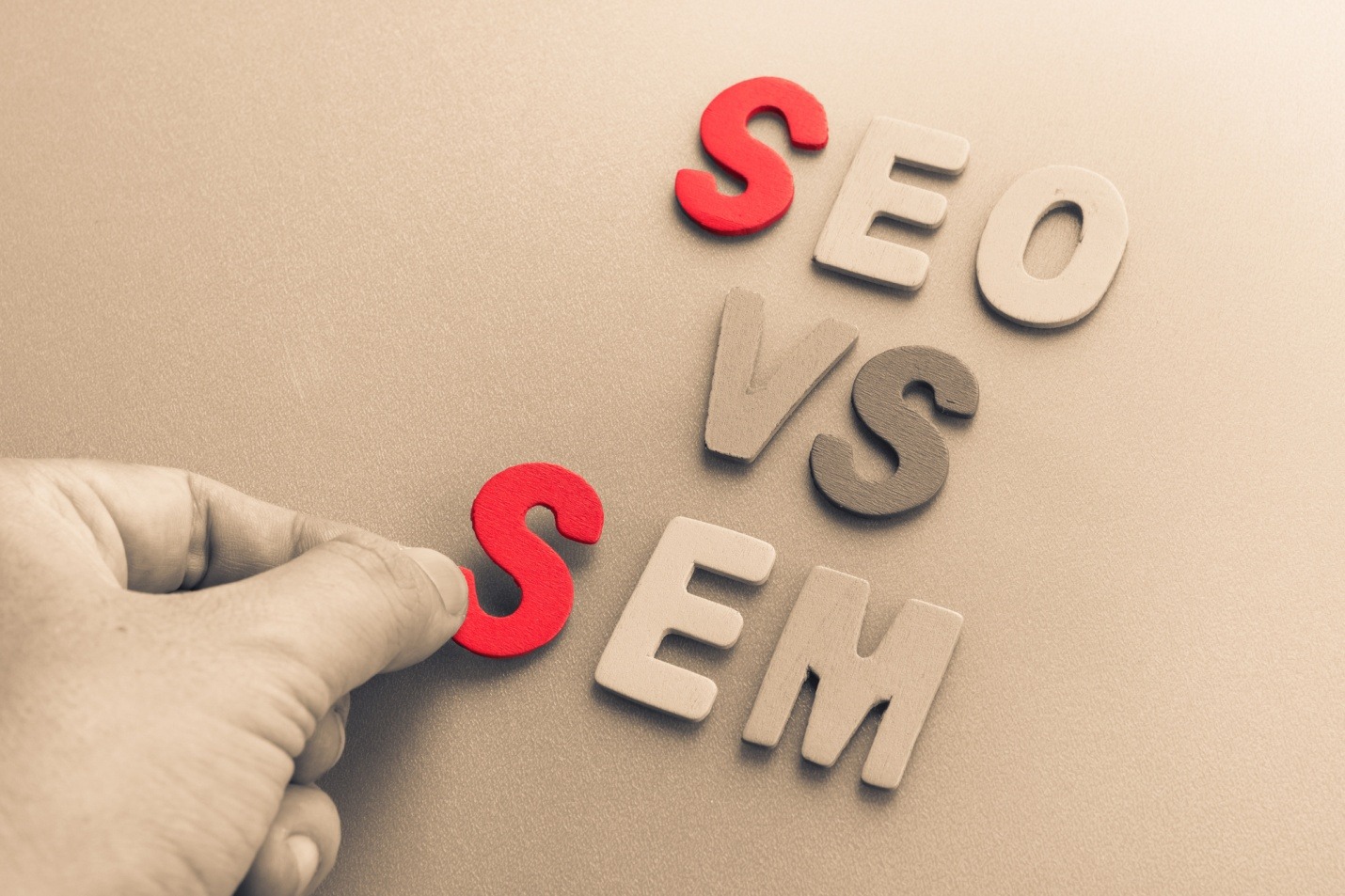Did you know that SEO dates back to 1997? Thanks to the internet, marketing has evolved in many different ways. As marketing has evolved so has the language that marketers use. Two acronyms that you might have heard of but might not understand their difference are SEO vs SEM.
If you are guilty of using these two terms interchangeably we are here to break down their difference.
What Is SEO?
First, let’s go over in more detail about Seach Engine Optimization (SEO). This is when content is optimized to be discovered through a search engine’s organic results. For example, when someone searches for something in Google, you make your content optimized to show up as high as possible on the results Google produces.
Search engines such as Google look at many different factors when they are deciding which sites to rank first. While it is true that no one knows 100% of these factors (because they are constantly evolving and changing) there are a few important factors that can affect how long for SEO to start working.
Off-Page SEO
This is everything that is done outside of a website to help improve its rankings. Some ways of working off-page SEO is by getting or buying backlinks from other authoritative websites that are relevant to your niche, also by having others mention your brand on their own site or social media presence.
Positive reviews are great for local business SEO because search engines will see you as a credible and reputable business to share with others.
On-Page SEO
This is when individual web pages on your site are optimized for search engines. A few different ways to optimize an individual page is by covering a topic in-depth and truly write an article that helps answer people’s questions or issues. Another way to optimize on-page SEO is by including keywords throughout the article that people use when they are searching.
Using short URLs that are descriptive is another way to increase those rankings on search engines. You can also use meta descriptions and title tags to your advantage because search engines look at these when they are crawling your pages.
Matching a user’s search intent is huge for on-page SEO. In simple terms, this means thinking about what the end-user is typing in a search. Put yourself in their shoes searching for what you have to offer and use this when creating your content and choosing your keywords.
Information Keywords
Using SEO to rank for informational keywords is best. Most people search on sites like Google to get information. This means that they are searching to learn not to buy. It does not make sense to spend money on keywords that people are using to learn about something because you will be paying for ads where the intention of the user is just to learn.
This will lead to 0% conversion, meaning you are spending money on ads and not getting any sales. This is why you want to use SEO for keywords that are informational instead of paying for that traffic.
What Is SEM?
SEM stands for Search Engine Marketing and is used to refer specifically to paid searches. This is when you buy ads on search engines in order to gain website traffic and have more people discover your brand.
The paid advertisements on search engines are more commonly known as PPC (pay-per-click) ads. This allows you to target those searching through specific keywords that match what their search query is.
Google AdWords and Bing ads are very popular examples of an SEM strategy. In order to have a successful SEM, you want to create ad groups that are made up of target keyword variations because everyone has their own way of speaking.
You also want to launch ad campaigns with a specific audience in mind. For example, the audience can be based on income level, geographic location, industry, etc.
Once you set up your SEM make sure to keep track of the metrics. Monitoring numbers like impressions, click through rates, clicks, etc will help you tweak your ads as needed.
Ranking for Competitive Keywords
Sometimes it can take years to rank for keywords that are highly competitive. This is where using an SEM strategy will come in handy. You can turn on some paid traffic to target specific keywords that you know people are searching for but search engines are not showing your site at the top of the rankings just yet.
When you pay for those rankings you will get seen more often. In order for it to make sense to continue paying for advertising, you want to increase your conversion rate. This is why setting up a strategic plan when it comes to your PPC ads will make a difference.
The Main Difference?
The main difference between SEO and SEM is that SEO is an organic search strategy that you build for your site, while SEM is a paid search strategy. Using both strategies simultaneously will make a huge difference when it comes to people discovering your site.
These two different strategies should be a part of every companies toolbox.
Feeling Like an SEO vs SEM Pro?
Now that you know more about SEO vs SEM you can start applying both strategies to your own website and see a surge in traffic and sales. The sooner you get started the better because it takes search engines a bit of time to crawl everything on your website.
Did our article come in handy today? Please check back often to never miss our latest!

